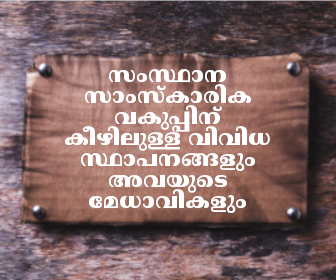1. The Jog falls consists of four waterfalls. They are Raja, Rani , Rocket and.....
(a) Rocker
(b) Roller
(c) Roarer
(d) Roamer
2. In which river is Chitrakot waterfalls?
(a) Godavari
(b) Indravati
(c) Narmada
(d) Tapti
3. In which state is Dhoot sagar waterfalls?
(a) Andhra Pradesh
(b) Goa
(c) Orissa
(d) Karnataka
4. In which river is Hogenackel waterfalls?
(a) Kaveri
(b) Godavari
(c) Vaiga
(d) Krishna
5. Which watefalls is known as the ‘Niagra of India’?
(a) Jog
(b) Sivasamudram
(c) Chitrakot
(d) Hogenackel
6. In which river is Sivasamudram waterfalls?
(a) Krishna
(b) Godavari
(c) Kaveri
(d) Tamraparni
7. In which state is Courtallum (Kuttalam) waterfalls?
(a) Tamil Nadu
(b) Karnataka
(c) Chhatisgarh
(d) Orissa
8. In which state is Athirappally waterfalls?
(a) Tamil Nadu
(b) Andhra Pradesh
(c) Karnataka
(d) Kerala
9. Tripparappu waterfalls is in the state of:
(a) Kerala
(b) Tamil Nadu
(c) Karnataka
(d) Andhra Pradesh
10. Palaruvi waterfalls is in:
(a) Tamil Nadu
(b) Andhra Pradesh
(c) Kerala
(d) Karnataka
11. India is the birth place of four major religions- Hinduism, Buddhism, Jainism and.......
(a) Parsi religion
(b) Bahai religion
(c) Shintoism
(d) Sikh religion
12. The second largest religion in India:
(a) Christianity
(b) Islam
(c) Sikh religion
(d) Parsi relgion
13. The largest minority religion in India:
(a) Sikh religion
(b) Christianity
(c) Islam
(d) Bahai religion
14. The third largest religion in India:
(a) Christianity
(b) Islam
(c) Parsi religion
(d) Sikh religion
15. India has the largest number of ........ in the world:
(a) Parsis
(b) Bahais
(c) Sikhs
(d) All of these
16. India has .......... largest number of Muslims in the world:
(a) Second
(b) Third
(c) Fourth
(d) Fifth
17. The non-Mulim majority country with the largest Muslim population:
(a) Indonesia
(b) Bangladesh
(c) India
(d) USA
18. The Indian state with the largest percentage of Muslims:
(a) Kerala
(b) Uttar Pradesh
(c) Jammu Kashmir
(d) Orissa
19. Which Union Territory/State has the largest percentage of Muslims:
(a) Jammu Kashmir
(b) Kerala
(c) Lakshadweep
(d) Delhi
20. Which region in India has some Christian majority states?
(a) Western
(b) Southern
(c) Central
(d) North East
21. Indian Institute of Petroleum is at:
(a) Mumbai
(b) Chennai
(c) Digboi
(d) Dehra Dun
22. Which is not situated at Bangalore?
(a) Indian Institute of Science
(b) National Aeronautical Laboratory
(c) Tuberculosis Research Centre
(d) National Tuberculosis Institute
23. Which is not in Lucknow?
(a) National Botanical Research Institute
(b) Industrial Toxicological Research Centre
(c) Central Drug Research Institute
(d) Central Food Technological Research Institute
24. Select the wrongly matched:
(a) All India Malaria Institute- New Delhi
(b) Cholera Research Centre- Mumbai
(c) King Institute of Preventive Medicine- Chennai
(d) National Institute of Mental Health- Bangalore
25. National Institute of Communicable Diseases is located at:
(a) New Delhi
(b) Kolkata
(c) Chennai
(d) Pune
26. National Institute of Oceanography is located at:
(a) New Delhi
(b) Mumbai
(c) Panaji
(d) Cochin
27. Where is Indian Institute of Sugar Technology?
(a) New Delhi
(b) Kanpur
(c) Ranchi
(d) Mumbai
28. Indian Lac Research Institute is at:
(a) Patna
(b) Dhanbad
(c) Jamshedpur
(d) Ranchi
29. National Chemical Laboratory is at:
(a) New Delhi
(b) Ahmedabad
(c) Nasik
(d) Pune
30. National Metullurgical Laboratory is at:
(a) Jamshedpur
(b) Dhanbad
(c) Bangalore
(d) New Delhi
31. The headquarters of Indian Army:
(a) New Delhi
(b) Kolkata
(c) Mumbai
(d) Chennai
32. Who is regarded as the father of Indian Army?
(a) Pethic Lawrence
(b) Stringer Lawrence
(c) Dalhousie
(d) Cornwallis
33. The first Indian to become the Commander-in-Chief of the Indian Army:
(a) Manekshaw
(b) SM Mukherjee
(c) KM Kariappa
(d) None of these
34. India’s first military base outside India is in the country of:
(a) Tajikistan
(b) Kazakhstan
(c) Uzbekistan
(d) Kyrgistan
35. Where is Armed Forces Medical College?
(a) Dehra Dun
(b) Pune
(c) New Delhi
(d) Kolkata
36. Where is National Defence Academy?
(a) Dehra Dun
(b) New Delhi
(c) Khadakvasla
(d) Mussorie
37. The first Field Marshall of independent India:
(a) KM Kariappa
(b) Manekshaw
(c) Arjan Singh
(d) None of these
38. The second Field Marshall of independent India:
(a) Arjan Singh
(b) KM Kariappa
(c) Manekshaw
(d) None of these
39. The first indigenously built missile of India:
(a) Pritvi
(b) Nag
(c) Agni
(d) Trishul
40. The first indigenously built air-to-air missile of India:
(a) Maitri
(b) Asthra
(c) Nag
(d) Akash
41. The chairman of the Atomic Energy Commission when India conducted its first nuclear explosion:
(a) Homi Sethna
(b) Raja Ramanna
(c) Nag Chaudhuri
(d) Homi Bhabha
42. In which district is Pokhran?
(a) Jaipur
(b) Ajmer
(c) Alwar
(d) Jaisalmer
43. Who is regarded as the father of atom bomb of India:
(a) Raja Ramanna
(b) Nag Chaudhuri
(c) Homi Sethna
(d) PK Iyengar
44. The first country which is not a permanent member of UN Security council to conduct a nuclear experiment:
(a) Pakistan
(b) South Korea
(c) Iran
(d) India
45. Name the country which helped India for the development and execution of nuclear device in 1974:
(a) France
(b) Canada
(c) Australia
(d) Russia
46. Prime Minister of India during the Pokhran explosion of 1998:
(a) Dewegouda
(b) VP Singh
(c) Chandrasekhar
(d) AB Vajpayee
47. India conducted second nuclear experiment in the year:
(a) 1998
(b) 1999
(c) 2000
(d) 2001
48. Apsara started functioning in:
(a) 1954
(b) 1955
(c) 1956
(d) 1958
49. Tarapur Atomic power station started functioning in:
(a) 1967
(b) 1968
(c) 1969
(d) 1970
50. India’s second nuclear reactor:
(a) Cirus
(b) Zerlina
(c) Dhruva
(d) Kamini












